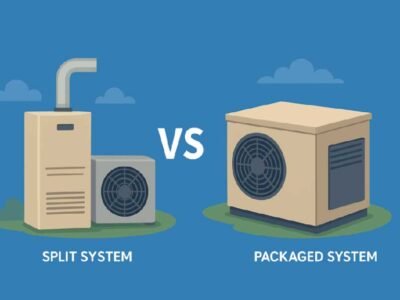The workplace is changing rapidly, and one factor contributing to it is online learning. The rapidly changing world has shifted learning from physical classrooms to the online world, opening new gateways to those with internet access. The internet has changed the way people access knowledge and has also changed the way careers develop. The transition to digital learning is proving to be beneficial to the employer-employee relationship by promoting a more agile, adaptable, and inclusive workforce for all.
The Rise of Flexible Learning
The workplace flexibility brought by online education is unparalleled. With a physical classroom comes the need for fixed schedules and in-person attendance. This is a strict no-go for the already busy workforce. The internet learning’s unparalleled flexibility meets the needs of whoever requires it. With the ability to set study schedules, both professionals and students no longer need to remain stagnant in a competitive world. This is a steal in today’s job market, with the ability to constantly evolve. Alhamd Islamic Center will add in your spiritual knowledge.
Lifelong Learning Becomes the Norm
A formal education came to a stop after someone graduated and found a job. That is not the case anymore. Today, there is a never ending need for education, due to rapid changes in technology, industry standards, and workplace demands. Furthermore, due to the internet, workers are now able to take short courses, attend webinars, and acquire necessary certificates all from the comfort of their homes or offices.
Bridging the Skills Gap
With the rapid evolution of technology and industry standards, workers are now required to constantly upgrade their skill set. Bridging the skills gap, which is the mismatch between the skills a worker possesses in comparison to the skills a company demands is caused due to online education. However, it does assist in training in popular sections such as data analysis, project management, digital marketing and artificial intelligence. Most of these programs are designed in conjunction with industry professionals, by ensuring the skills taught to them are usable in real life.
Upskilling and Reskilling Opportunities
Education through the internet has made it easier for employees to upskill (enhance skills) and reskill (learn new ones) at the same time. A good example would be a graphic designer who can now take a web development course, or a retail worker who can transition to logistics after studying supply chain management. This flexibility is crucial in the automating and digitally disrupting industries, where job roles are transforming at a breakneck pace.
Democratizing Career Development
While online learning and education has its own hurdles, professional development still rests on a prerequisite framework that depends on access to costly degree-carrying institutions, specialized training programs, and industry networks. Such structures were not available to everyone. The removal of geographical, financial, or social borders for online education has made it more accessible. The same-quality education is now available to people from rural areas and gives them a chance to develop equally to those from metropolitan areas.
Effects of Remote Work
One of the effects of the rise in remote work has been the growth of online education. As more companies offer remote or hybrid working structures, employees are required to become more proactive and agile in adopting new tools and processes. Workers are learning these competencies and training for remote-friendly careers such as software developers, digital marketers, and virtual project managers through online education.
Employers Adopting Online Learning
Progressive companies are adopting accessibility to online education as part of the employee development strategy. Instead of teaching using in-person workshops or sending staff to external seminars, employers are giving their workers a chance to learn through e-learning platforms that have thousands of courses. This strategy cuts training expenses, and in addition allows the employees the flexibility to learn at a time and pace that works best for them. Employees are no longer passive recipients of information. They have the power to shape their learning, and have become more proactive in managing their professional development.
Specialized Training by Industry
Healthcare, finance, engineering, and other fields may now have tailored online programs that address specific needs. This approach allows workers to gain relevant skills without spending years in degree programs. For example, healthcare workers can complete certifications in telemedicine, and engineers can study new sustainable energy technologies. Even the likes of supply chain digital transformation and similar areas can be improved on with the right resources and online learning.
Networking on a Global Scale
The concept of online learning as an isolated experience is changing. It is not limited to offline global networking, and learners can now connect with peers, mentors, and industry experts from other countries. This goes a long way in enhancing a person’s professional network and exposes them to different perspectives. Such international collaboration reflects the global nature of work. Choose the best source to learn Arabic qaida for kids.
Conclusion
The impact of online education is changing the landscape of work in completely new ways. It is flexible, encourages continuous learning, narrows the skills gap, and democratizes opportunities. It is fostering a more competitive global workforce by allowing employees to upskill and reskill. From the employer’s perspective, online learning is an investment that develops skills that enhance organizational resilience in a rapidly evolving marketplace. As new technologies emerge, the connection between online education and work will deepen, influencing the careers of tomorrow.












